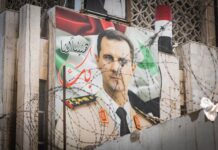The Boston Police Department used a social media surveillance program to spy on black and Muslim protesters, according to a report released by the American Civil Liberties Union (ACLU).
Last Wednesday’s findings stated that the police gathered thousands of posts about religious, political and social issues, as well as personal matters “irrelevant to law enforcement concerns”.
The data mining program, called “Geofeedia” was run by the Boston Regional Intelligence Center between 2014 and 2016.
The ACLU of Massachusetts said: “This system explicitly targeted users’ First Amendment protected speech and association. It treated ordinary citizens discussing ordinary affairs as justifiable targets of surveillance.”
In the ACLU report, co-authors Kade Crockford and Nasser Eledroos said they exposed the department’s alleged discrimination in documents obtained through a public records request.
The authors wrote: “There is no indication that the wide net BPD cast over social media using Geofeedia was ever instrumental in pre-empting terrorism or other violence, solving serious crimes, or providing the residents of Boston with any other public safety benefit.
“This is unsurprising, given that many of the search terms fed into — or, frequently, provided by — Geofeedia were terms associated with political activism, like ‘#blacklivesmatter’ and ‘protest.’”
Subscribe to our newsletter and stay updated on the latest news and updates from around the Muslim world!
Other words that Boston police allegedly focussed on were “ISIS”, “Ferguson”, “#Dontshoot” and “#MuslimLivesMatter”.
The report added: “More broadly, BPD used Geofeedia to track numerous Arabic terms for no apparent reason other than their frequent use in the Muslim community.
“Among the categories of keywords BPD tracked using Geofeedia was ‘Islamic Extremist Terminology,’ which included not only references to ISIS and similar terrorist organisations but also innocuous Arabic words routinely used to discuss religion or community, including ‘Ummah’ (which means ‘community’ in Arabic) and ‘al Sham’ (which roughly translates to Greater Syria).”
The Boston Police Department used the system in between 2014 and 2016 before finally scrapping it that year after receiving backlash from Facebook and Twitter.
The social media giants banned Boston police from using their data in December 2016, and that is when it caught the ACLU’s attention and prompted them to make the records request.
Police officials told the Associated Press that the civil rights organisation was ultimately “misinformed” — and that their report did not present an accurate reality of what the department was doing with the data mining system.
Detective Lt. Michael McCarthy said: “Our main focus in all of this is public safety, not targeting speech, not targeting people’s political affiliations.
“And quite frankly, to have the ACLU to even make that insinuation is not only insulting, but it’s completely misinformed.
“If we weren’t diligent in our efforts to provide safe events for those participating and attending then we wouldn’t be doing our job as police officers.”




















